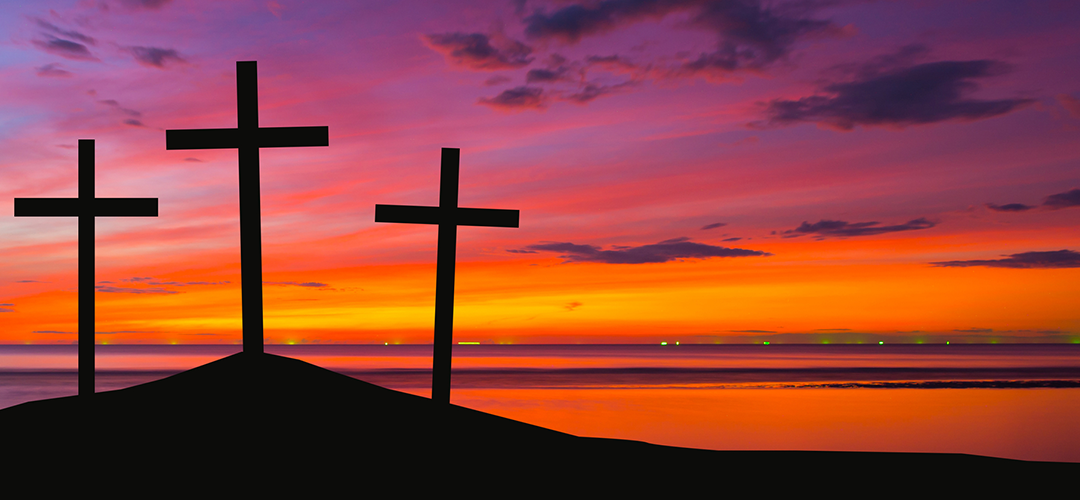Easter Reflections (4) – May 15, 2019
Grand Design…
Voices around us insist that we exist by chance and that our experience of life now is all there is. And many of these voices want to shut down any opposing view, no matter whether it is grounded in history or makes sense philosophically.
In his book God’s Undertaker: Has Science Buried God? Dr. John Lennox, emeritus Professor Mathematics, Oxford University, writes, “To the majority of those who have reflected deeply and written about the origin and nature of the universe, it has seemed that it points beyond itself to a source which is non-physical and of great intelligence and power.”
Transcendent Power. With our culture’s opposing voices, we often overlook the transcendent power that was at work in the physical resurrection of Jesus. A careful reading of the Gospel records, Luke 24 for example, reveals that Jesus’ resurrection did not occur because of some natural mechanism. Rather it happened because God chose to intervene (Romans 6:4b).
Eyewitnesses. Furthermore, we don’t just have the Gospel records. In 1 Corinthians 15:4b-6a, 8, Paul the Apostle writes: … Christ was raised on the third day according to the Scriptures, and …he appeared to Peter, and then to the Twelve. After that he appeared to more than five hundred of the brothers at one time, most of whom are still living… Last of all, as to one untimely born, he appeared also to me.
Paul is saying that Christianity didn’t start because a group of fanatics had invented a story about their hero, nor because a group of philosophers had come to an agreed conclusion about life, nor because a group of mystics shared the same vision about God. It began with eyewitnesses – ordinary men and women who saw something very extra-ordinary happen. In fact it began with the history of a man who had risen from the dead.
Grand Design. Furthermore, there was a far-reaching purpose in the events of Jesus’ death and resurrection. In Luke 24 the dominant theme is Jesus’ crucifixion: “It had to happen”.
In his conversation with the two on the road to Emmaus Jesus said: “Was it not necessary that the Messiah should suffer these things and enter his glory?” (24:26). He also pointed out, ‘If you knew the Scriptures you would have known that for me the road to the crown was through the cross. That was the message of the prophets. I would be the suffering servant of whom they spoke.’
And later, when he met with the disciples, he spelled out God’s grand design. He showed them how the Scriptures pointed to Messiah’s necessary suffering, death and resurrection on the third day (24:46).
Furthermore, he told them what then needed to happen: “Repentance and forgiveness of sins is to be proclaimed in his name to all nations, beginning from Jerusalem” (24:47). Jesus’ death and resurrection are tightly linked to the announcement of the forgiveness of sins.
Indeed, Paul identifies this when he writes: For I passed on to you as of first importance that Christ died for our sins according to the Scriptures, that he was buried, and was raised on the third day … (1 Corinthians 15:3)
The story of Jesus’ death and resurrection is not merely that of a dead man who came back to life, nor that of a dying and rising god. Nor is it a romantic story that tells us that death is not the end. It is the record of Messiah’s shameful death by crucifixion, suffering the pains of God-forsakenness on our behalf because we have broken God’s holy law.
Unless sin had first been dealt with, Jesus’ resurrection would not point to forgiveness and new life. Everyone who truly turns to him now will enjoy life with him forever.
In these days when strident voices want to close down freedom of speech and especially freedom of religion, we need to pray for our leaders and for wisdom to discern leaders who will protect freedom of religion.
Jesus’ resurrection bears witness to God’s grand design for men and women – a design that offers a life of meaning and purpose, love and joy forever.
In his final Narnia story, The Last Battle, CS Lewis metaphorically opens our eyes to an ever larger picture of God’s Grand Design: “And as He (Aslan) spoke, He no longer looked to them like a lion; but the things that began to happen after that were so great and beautiful that I cannot write them.
“And for us this the end of all the stories, and we can most truly say that they all lived happily ever after. But for them it was only the beginning of the real story. All their life in this world and all their adventures in Narnia had only been the cover and the title page: now at last they were beginning Chapter One of the Great Story which no one on earth has read: which goes on for ever: in which every chapter is better than the one before.”


